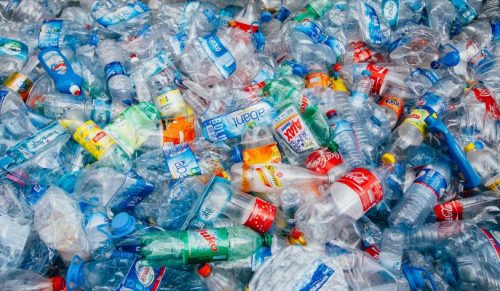
How Can We Reduce and Manage Industrial Waste?
The majority of the annual worldwide garbage production comes from industrial waste. As a result, proper industrial waste disposal will significantly help to reduce the present waste crisis that is affecting many areas of the globe.
You must consider the safest waste management practises if you run a business that produces hazardous or industrial wastes. The best ways to manage industrial waste are those that guarantee no environmental impact and try to reduce, reuse, and recycle as much as possible. Here are some of your area’s top methods for dealing with industrial waste.
Why is Industrial Waste an Issue?

The environment and public health are equally at risk from industrial waste. If it is not disposed properly of, it can contaminate the soil, the air, and the water. This may also have a negative impact on people’s health, including the well-being of the staff at your facility.
General Industrial Wastes
Here are a few types of industrial wastes:
- waste tyres
- Food waste
- Packaging waste
- Paints
- Wood waste
- bushfire waste
- glass processing
- plastic resin pellets
- combustible recyclable and waste materials
The benefit of reduce and managing industrial waste
Investing in environmentally friendly waste management has countless advantages.
Here is a sample.
It can save money, especially considering the price of disposing of some hazardous waste and gain new efficiency and improve processing.
Businesses can benefit from sustainability. People (and businesses) prefer to work with organisations that care about the environment.
How can we reduce and manage industrial waste?
Measure the Waste
If you don’t know how much garbage you’re making, how can you effectively reduce it? You ought to challenge individuals in your firm to minimise the amount of waste they produce by doing so after sharing the findings of your waste measurement.

You can take action to lessen that kind of garbage if you discover that a particular area of your company is producing a lot of waste.
Segregation
Glasses, plastics, and paper waste from industry are recyclable. Due to this, a business should separate this garbage from biodegradable, hazardous, and solid non-hazardous waste. To accomplish this, the factory or business needs to recognise the recyclable materials and set up a unique trash collection mechanism for each. This can be accomplished by placing a recycling container or dumpster at the facility or business.
Packaging
Your business may generate a lot of waste in the form of packaging materials between your raw materials and goods. Though it is challenging to completely do away with product packaging, there are strategies you may come up with to lessen its negative effects on the environment.
Plastic packaging is increasingly being replaced with more environmentally friendly materials like cardboard boxes by many businesses. If possible, strive to recycle or reuse the majority of the packaging for your raw materials.
Food Waste

Reducing food waste is another approach to drastically cut waste. Think about the leftover food that your staff members create in the “breakout room” or another dining area. Recycling your leftover food is an excellent strategy to reduce waste that is dumped in landfills. Methane gas is emitted in a landfill during the decomposition of food waste. A very potent greenhouse gas is methane. Methane is around 30 times more powerful as a heat-trapping gas than carbon dioxide.
Utilize Landfills
Once the waste has been sorted, the manufacturer or business should dump non hazardous waste that cannot be recycled in landfills. Waste is compressed and buried beneath the earth’s surface in a landfill. Buried waste generates gases that can be used to produce fuel or energy when it deteriorates or decomposes. Considering its affordability and safety, landfilling garbage has become a common practise. But because they are made to hold only a certain amount of rubbish.
Reduce the Use of the Bottled Water in Your Company

Many businesses frequently generate waste from plastic drinking bottles. To maintain our priceless planet, we must minimise all types of debris, whether industrial or not, hazardous or not. According to Tap Water.org, India uses 18 billion plastic bottles annually, and since only 25% of these 18 billion bottles are reused, “this means 38 million bottles end up in a landfill each day”! By switching from bottled water to drinking glasses, you can avoid plastic water bottles. Additionally, you may urge staff members to bring their own reusable water bottles to work.
Composting
Organic waste is turned into plant-nourishing fertiliser through the composting process. The majority of food waste may be composted, and even hazardous organic materials can be transformed into safe compost. Food scraps, sawdust, newspapers, grass, and extremely small bits of cardboard can all be composted. After that, compost is applied to the soil to add nutrients and promote growth. One of the best methods for reusing and recycling waste is composting.